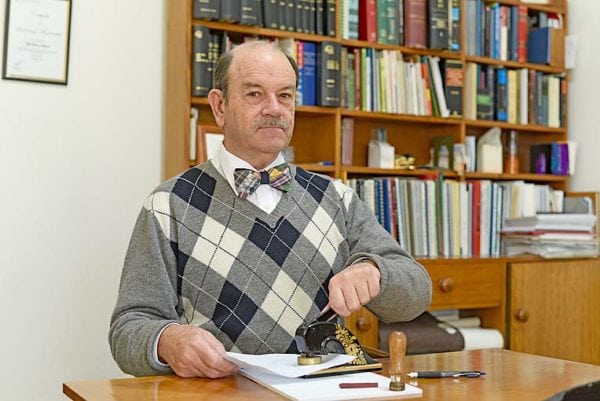

AXING of funding to the South East Community Legal Service is the latest development in an ongoing under-resourcing and winding back of services in the region, according to a prominent solicitor.
Lawyer Thomas Rymill said funding cuts to the legal system were creating many issues, including a large backlog in the Mount Gambier District Court.
With the District Court circuit only visiting the city three times a year for four weeks, a number of defendants are left waiting months and in some cases years for a trial.
Mr Rymill said some accused who are made to wait in jail are being “deprived of their liberty”.
“If you are on bail, you may be waiting two years to get a trial and even if you are in custody you still might be waiting a year,” Mr Rymill said.
“It costs a lot to keep someone in jail and then at the end of it all if they are acquitted or the prosecution case is dropped, you have deprived them of their liberty.”
Mr Rymill said the “current group of politicians” is under-resourcing the legal system in regional areas and not focused on trying to resolve the issue.
“We are run by the bean counters who are looking for ways to cut money, they have not been trained in the philosophy of the law and the need for justice to be local, so they take away the circuits,” Mr Rymill said.
The long wait for a trial has caused a flaw in the administration of justice with Mr Rymill revealing clients will sometimes plead guilty to “get it over and done with”.
“If they are going to be held in remand for 12 months, they realise if they put in a plea there might be a chance they only get six months, so they do the plea,” Mr Rymill said.
“Coupled with that is the scheme that if you plead guilty at an early stage, you get a large discount on penalty, which is sometimes encouraging people who aren’t guilty to plead guilty to get it over and done with … it isn’t working very well.”
Currently, people charged with major indictable offences are required to pay their side of the court costs regardless of whether they are found guilty.
Mr Rymill said if the prosecution was forced to pay both sides when an accused is found not guilty, their would be less cases clogging the list.
“If the prosecution was made to pay the defendant’s costs when they lose it might make them think very seriously about whether to go ahead with the charge,” Mr Rymill said.
Another issue is the fact major indictable offences in Mount Gambier do not get passed onto the Director of Public Prosecutions (DPP) until the defendant is committed for trial, meaning the file is not being handled by the prosecutor who will conduct the trial until a very late stage.
Mr Rymill believes an upcoming change in the system will see the files passed onto the DPP after the defendant’s first appearance may help speed up the court process.
“Maybe the director will look at the file sooner and decide whether to proceed or not proceed, but there is every chance they will still only look at the last minute, so you will have the same problem in a different department,” Mr Rymill said.
“There is only a chance it will make a difference because as far as I understand it, the DPP is also being squeezed of his funding, so a lot of his people probably won’t look at the matter until the really have to.”







